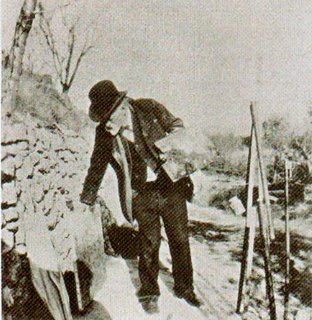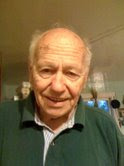Cézanne Comes to Washington, D.C.
 Inside this building, the world of Provence, France, circa 1880-1906 comes alive from the work of this immortal artist, considered the father of modern art.
Inside this building, the world of Provence, France, circa 1880-1906 comes alive from the work of this immortal artist, considered the father of modern art.Seeing Cézanne in the National Gallery is quite an experience. He lived in a time when our modern social upheaval was in its infancy. Workers agitated for better conditions and a more socially responsible society. Many artists aligned themselves with the workers. They regarded themselves as workers, separating themselves from the establishment artists of the Academy.
Cézanne was one of these new types. Aside from a few years studying in Paris, he lived in his native land, Provence most of his life. He painted mostly out in the open in the midst of nature. It was hard work. By time he was 67, he was worn out from his labors.
I stood for long periods of time before the many great paintings that came from his hand, his mind, his eye, his soul. I stood and marveled at the enormity of this artist’s output. He produced great works incessantly, even to his last days, painting in the rain. The exposure was too much. A few days later, he passed on.
I couldn’t help contrasting his time from ours. My wife is a great artist. You can see her work at http://margotbergman.com to understand what I mean.
When she paints a scene from nature, she works from a photograph. She sits in her studio and paints, takes a break, has a cup of tea, and then paints some more. She’ll go work in the garden for an hour or so, and then back to her painting. A lunch break. Then more work with the brush. And so goes her day.

But Cézanne did not have the modern comforts, nor the photographic technology that could produce vivid images in color to work from.
He had to stand for hours in the harsh sunlight, sweating in his old fashioned, heavy 19th century clothing, plagued by bugs, mosquito bites, and God knows what else.
Yes, he was a worker. And here are two examples of what he produced.





0 Comments:
Post a Comment
<< Home